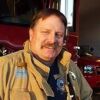After you attend enough medical emergencies you begin to recognize the same people time and time again. No, not the same individuals, but those with the same traits.
I guess it’s just human nature how different people react to different events in their lives. However, you can count on meeting some of these four people at emergency medical scenes.
1. The translator
The translator will answer every question in the primary exam for the patient.
“Sir, how long have you been experiencing chest pain?”
“He has had chest pain for about an hour.”
“Did you take anything?”
“He took a nitro about 5 minutes ago.”
Now at the risk of sounding sexist, the translator is usually played by a female. Naturally, there can be male translators, and I have met a few.
“Sir, do you have any allergies?”
“He once had a reaction to starfish omelets in Borneo.”
At some point I will politely ask if the patient can talk. That usually will help the translator gently understand we want to hear from the actual patient.
Obviously if the patient is incapacitated or a small child, a family member with information is very helpful and much needed.
2. The hospital selection expert
These can be very problematic. It usually starts at the time of dispatch. The selection expert will inform the call taker that the patient has to go to Our Lady of the Frozen Lake Hospital because that is where her doctor is.
When you walk in the door you are greeted by the selection expert who announces that this patient is going to Our Lady of the Frozen Lake and that is final.
Well, about that.
We usually try to accommodate these things, especially if the patient has a serious medical condition and she has recently been seen at that facility. Sometimes the medical condition dictates where we have to go. A certain level of trauma should go to a trauma facility; a suspected stroke should go to a stroke facility and so on.
Now I’m not a doctor, nor do I play one on TV. However, I don’t think the urologist is coming down to the ER at 2 a.m. to look at a broken toe. I’m pretty sure the urologist will let the emergency room doctors handle this. Medical professionals please correct me if I am wrong.
But, in the end the selection expert will have none of this. Even an explanation of the protocol that says “transport to the closest appropriate facility” has no effect. They see nothing wrong with passing five hospitals on the way to Our Lady of the Frozen Lake.
However, sometimes it is a heavy call-volume night or the hospital request is completely unreasonable, like being in another state. This request was to go from Texas to Virginia.
We will politely explain that, no, we are going go St. Somewhere, which is five minutes away. This always ignites an uproar, and the inevitable, “I pay my water bill for this!”
3. The navigator
Once in the medic unit the navigator will question you on your route to the hospital.
“Are you going to go Main to the freeway? It’s faster to go Route 1. I would go Maple to Main because Barnyard Memorial is right there on the right.”
I usually smile and tell the navigator this is the route we have to go as dictated by Homeland Security. They always look confused after that. Of course in the case of the persistent navigator I use the fail-safe: “talking to the driver of an emergency vehicle is prohibited by federal law.”
That always works.
4. The TV medical expert
Although they hold no medical training certifications of any kind, the medical expert has watched every episode of “Grey’s Anatomy” and has Googled all the major aliments. They are a wealth of information and suggestions.
“This person needs a CT scan, I suspect a GI bleed, are you going to check the blood sugar? My mother died of this.”
I attended a seizure call one afternoon at a bus stop. We knew who we were going to see before we left the station. A middle-aged homeless man resided at the bus stop.
He was and is a frequent flyer. He has a seizure disorder and gets transported a lot. The bus stop was one of those covered ones and this gentleman ate and slept there. On occasion he would get run off by the transit police, but most times he was there.
On this particular outing he had fallen during the seizure and bumped his head. A middle-aged woman was on the scene holding a towel to his head when we arrived. She gave her patient assessment and finished up with the statement, “It’s my professional opinion that he be transported to a medical facility.”
I acknowledged and thanked for her patient report and asked if she was a doctor or nurse.
“No,” she said thoughtfully pointing to the end store in a strip center. “I run the wig shop over there.”
The only thing missing was her saying, “But I did stay in a Holiday Hotel last night.”
I politely invited her to be on her way back to the wig shop.
Let me hear from you.












